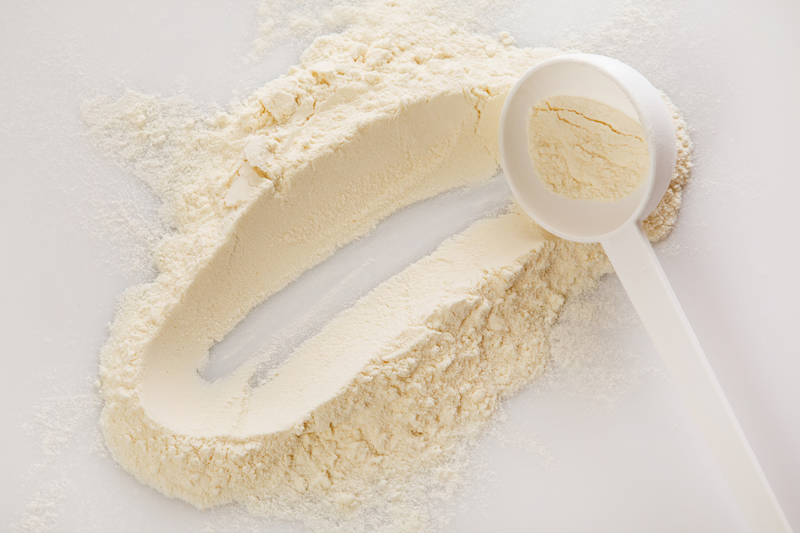Whether you look for them or not, online fitness trends are stalking you. Weighted vests. Protein. Zone 2 training. Lately, there is one in particular that has been all over my Instagram feed and in the questions I get online: creatine supplements. The internet makes it sound as if I’m not bathing in this stuff, then I am rapidly turning to dust.
Is this true? Or is creatine just another overhyped wellness obsession, like vitamins? Let’s go to the data.
What is creatine?
Creatine is an amino acid. You consume it in food — meat and seafood, primarily. Creatine is primarily stored in your muscles, and it is used for energy, especially in anaerobic muscle activities like lifting and sprinting.
With food alone, your muscles are generally not fully saturated with creatine, meaning they could take more, and supplementation can increase these levels. Creatine supplementation at typical dosage levels (5 g as a maintenance dose, sometimes with higher doses at the beginning, depending on your goals) is safe and has limited side effects.
The claims made about creatine benefits are very broad, encompassing everything from weightlifting to cycling times to dementia. As is often true of claims about nutrition (protein, for example), it is useful to separate claims about athletic performance from claims about overall health.

How does creatine impact athletic performance?
There is little debate that creatine supplementation can improve muscle building among athletes. This has been known for a long time; a 2003 review noted over 500 papers on creatine, many of them randomized trials, across a wide range of athletes. In 70% of cases, the papers showed significant positive effects on lifting strength and sprint performance. There is a lot of biological plausibility to this link; taking a creatine supplement increases the creatine storage in your muscles, and then more is available to use in these anaerobic efforts. There is also evidence on creatine in a broader set of athletes in enhancing recovery and recovery from injury.
The most compelling evidence on creatine benefits comes from sports such as weightlifting or soccer, where there is a need for short bursts of anaerobic effort. The evidence for benefits in endurance athletes (people who are primarily engaging in aerobic exercise such as distance running or cycling) is more mixed. A 2023 meta-analysis of randomized trials found no evidence for the benefits of supplementation in these populations. On the other hand, some have argued that improved anaerobic abilities could allow for late-race surges, even in primarily aerobic efforts.
Bottom line: if you are looking to improve athletic performance, creatine supplementation is probably a good idea, especially if you do short-burst sports. The evidence for endurance sports is more limited, but there are also no clear downsides, and it might help you sprint past that person in front of you at the end of the 5K.
Should everyone take a creatine supplement?
If we move outside the realm of athletic performance, can creatine improve health for a broader population?
Overall physical health
The primary reason this would be recommended is to help maintain muscle mass as people age. We have good evidence from randomized trials that, in older individuals, supplementation with creatine can improve muscle building during resistance training. And, in particular, that adding a supplement is better than resistance training alone. This isn’t surprising, given what we know from athletes.
Although most of these trials are in older people, building muscle mass at a younger age contributes to having muscle mass at older ages, so the same logic of benefits would apply.
A very important point here: these studies all combine supplementation with resistance training (some kind of weight lifting). This is very important! Just taking creatine on its own will not improve your muscle mass. It is the taking of it with the exercise that matters. And the exercise itself is the most important.
Put differently, if you are not already engaging in some strength training exercises, it is a good idea to start, especially as you get older; strength training during menopause can impact bone health, for example. Once you’re doing that, go ahead and add some creatine. But the creatine alone isn’t going to create muscles.
Brain health
There is some promising evidence that creatine supplements might improve cognitive health in older adults. A 2018 meta-analysis of randomized trials (with a total of 281 participants) showed improvements in short-term memory and reasoning tests in older individuals. These effects didn’t show up for younger individuals, and were larger for vegetarians, which could reflect the lower creatine levels in their food. There is also some small-scale evidence that creatine supplementation improves cognition in the face of sleep deprivation in adults.
Most recently, a small pilot study showed improvements in some cognitive testing in Alzheimer’s patients with creatine supplementation. More work would need to be done on that — most notably, the pilot study had no control group — but this is promising. Again, there is some biological plausibility to the idea that these supplements might improve cognition, since they increase creatine stores in the brain.
Trying to conceive, pregnancy, and breastfeeding
When it comes to pregnancy and breastfeeding, the rhetoric is the usual “This hasn’t been proven safe, so avoid it.” In the case of pregnancy, however, that may be counterproductive. It is possible that creatine supplementation in pregnancy could be beneficial.
The evidence for this comes from theory and from data on mice. On the theory side, researchers have speculated that because pregnancy requires more energy, extra creatine could be beneficial. This is supported by a body of evidence from mice that shows that taking creatine in pregnancy improves newborn outcomes. Most notably, it protects against the impacts of brain hypoxia (when the brain is deprived of oxygen during birth). Brain hypoxia can also happen in humans and is a source of birth injury with long-term consequences. Based on the mouse evidence, researchers have suggested that creatine supplementation might be a generally effective intervention in pregnancy. Some go so far as to suggest that creatine supplementation might be especially important in pregnancy.
Obviously, people are not mice, and more needs to be done to show that this might have an effect on people. But animal models are an excellent starting point.
On the flip side, there is no reason to think creatine supplementation during pregnancy would pose a danger, based on either the mice evidence or our understanding of biology. However, there are no randomized trials showing safety either. Clearly, there is work to be done evaluating both the possible benefits and the safety profile here.
The situation in breastfeeding has similar uncertainty. We know that creatine passes through breast milk. It is possible that with very high levels, infant kidneys would struggle to process it. It is therefore often recommended that you abstain from supplementation through the first six months (after six months, the kidneys are better developed). This is, again, based largely on theory, not data.
Finally, what about while trying to conceive? Even if you plan to quit supplementing during pregnancy, there does not seem to be a strong reason to stop during the period of trying to conceive. The impacts of supplementation are short-term, and there is no reason to think it would impact the chance of conception.
So, should you take it?
If you are an athlete, yes. Certainly, if you’re doing strength-based athletics, but I think the case for endurance athletes is also reasonable. If you’re wondering, yes, I do take a creatine supplement (I like this one).
If you’re an older adult, I would also say, yes. This isn’t a magic bullet, but the cognitive benefits seem interesting enough to me to do this, especially given there are no significant safety concerns. You should also be doing resistance training! And the combination of the two is good.
For a younger adult who isn’t engaging in meaningful weight training or other athletics, the benefits are limited. It’s not going to hurt you to take this, but it also isn’t going to help.
The bottom line
- Creatine is an amino acid found in food (mostly meat and seafood), but it can also be supplemented to improve athletic performance.
- For non-athletes, creatine supplementation is still beneficial, as it can help build and maintain muscle as we age, but only when paired with strength training.
- Creatine may also modestly boost memory and reasoning in older adults, with early signs of benefits for Alzheimer’s, though the evidence is still limited.
- Creatine may have benefits in pregnancy, but this is based on theory and animal studies, so data is still limited.















Log in
I’m also interested in the evidence around dosing. My first attempt at Creatine to supplement my strength training left me with unpleasant side effects. Does the cost or type of supplement matter? Are gummies effective?
I have heard concerns about lead toxicity from consuming protein powder. Does this apply to creatine as well?
Do you have any info about the dosage? Some say 3gr a day, some say 5gr. Some say 0,03gr per kg of bodyweight. What’s effective?
As with so many things parent data is the first place I heard about this new trend or debate. Where are others hearing these suggestions? Mainly forms of social media? Instagram, tiktok? If it’s a newly identified potential deficiency, that’s interesting, but supplementing for wellness is of less interest to me.
A lot of older people , are being advised to take it by doctors to maintain muscle mass with ageing. Also, sports and wellness professionals suggest it to their clients so if you train, you hear it or through friends. A friend has recently lost a lot of weight and was advised to take creatine in the process.